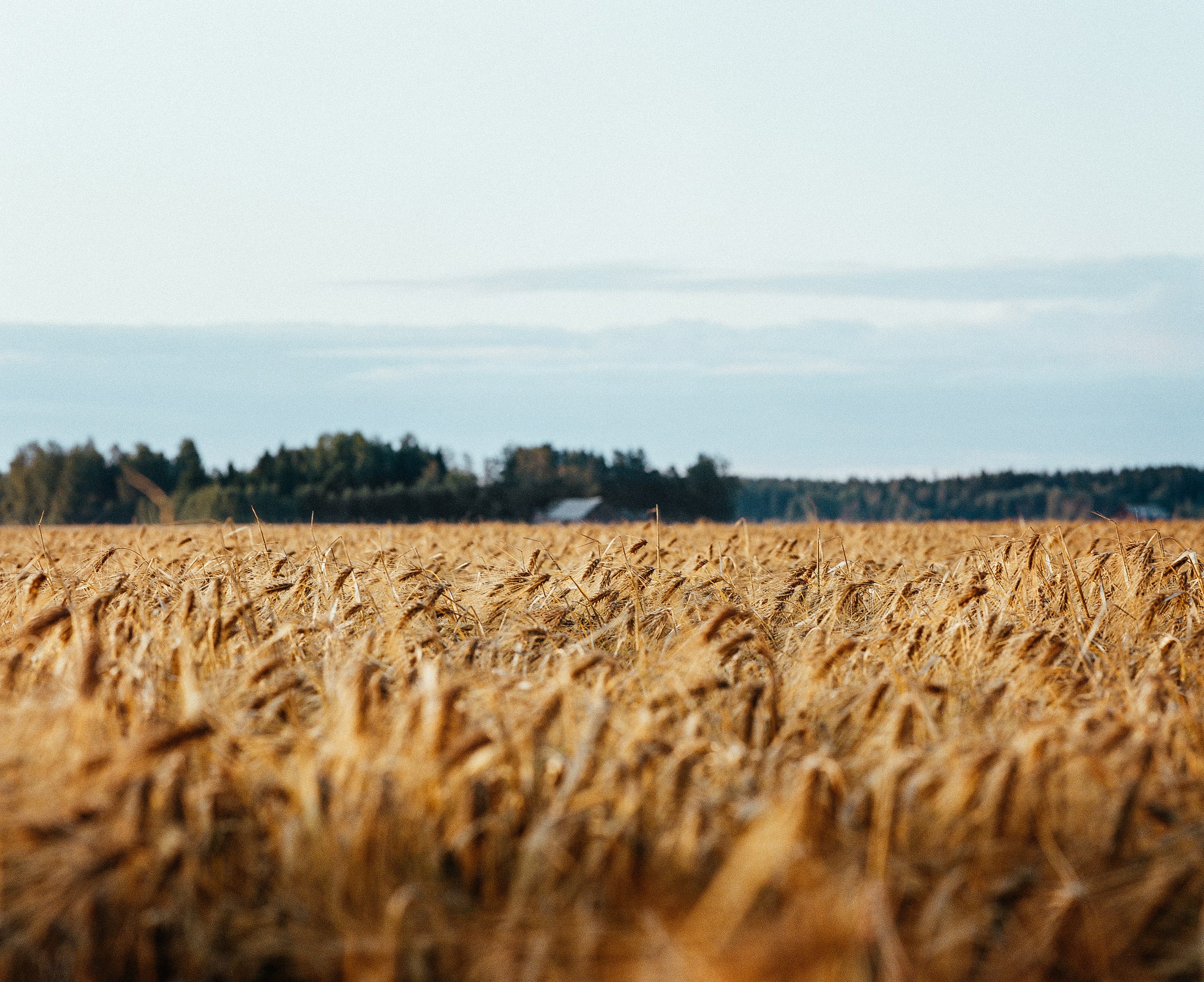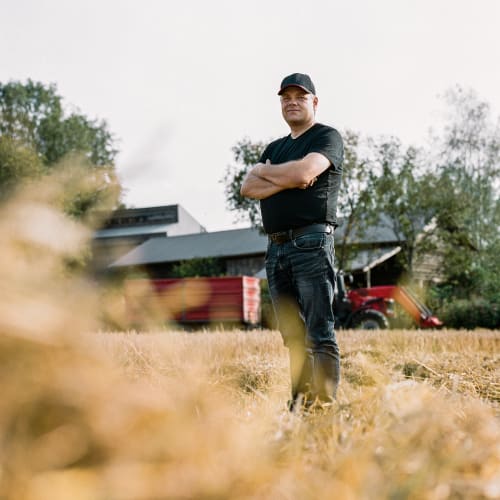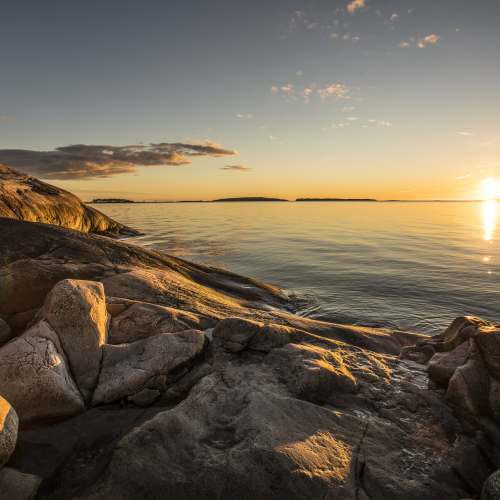
Trailblazing work towards regenerative farming with the Baltic Sea action Group and local farmers
Farming accounts for a major share of the carbon footprint of Anora’s products. But it doesn’t have to be that way: farming could actually be one tool in the fight against climate change. That’s why we partnered with the Baltic Sea Action Group and our contract farmers to develop more environmentally friendly farming methods and launch the world’s first vodka made entirely of regeneratively farmed barley.
In 2018, Anora joined the Baltic Sea Action Group’s (BSAG) Carbon Action pilot project together with selected contract farmers in Finland, as part of our Baltic Sea Commitment. The purpose of the project was to investigate the effects of farming practices on soil and develop more climate-friendly ways of farming. In 2020, farmer Jari Eerola pioneered the first batch of regeneratively farmed barley, which will be used to create the first concrete product innovation from the collaboration, Koskenkorva Vodka Climate Action.
Regenerative agriculture is a holistic cultivation method that aims to convert fields from emission sources into significant carbon sinks, mitigating climate change and protecting biodiversity. By improving soil health these methods increase carbon sequestration in agricultural soils while also enabling better crops and mitigating land erosion. If all the farmers in the world transitioned to regenerative farming, we could remove up to 322 billion tons of CO2 from the atmosphere. That is nearly as much as we globally emit in 10 years.
Climate hero Jari Eerola
Jari Eerola is one of Anora's contract farmers and the first to transition to regeneratively farmed barley. During the summer of 2020, the Setälä-Eerola farm in produced 50 tons of barley, which will be distilled to make Koskenkorva Vodka Climate Action. Eerola follows BSAG’s directives on regenerating farming: soil coverage is maximized on fields all year round, crop rotation and minimum tilling is applied, and organic fertilizers are used.
“In the future, the whole Setälä-Eerola estate will switch to regenerative agriculture because in the long run it is a the best alternative not only for climate but also an economic and productivity perspective. I feel that this is one of the most important moments of my career as a farmer,” Eerola says.

"Through this work, we have an opportunity to be true climate heroes."
– Jari Eerola, owner of the Setälä-Eerola farm
Anora to train all its contract farmers in regenerative agriculture
Anora’s goal is that all its contract farmers educate themselves on regenerative agriculture by 2025. The company works together with BSAG in reaching this objective. The collaboration has lasted five years already, and a new long-lasting collaboration was agreed upon during the fall of 2020.
BSAG’s Carbon Action platform brings together researchers, farmers and companies to work together to find better ways to store atmospheric CO2 in soil, as well as verify the results scientifically. Developing a carbon calculator for measuring the results of regenerative agriculture is an example of the work conducted on the Carbon Action platform. Launched as a pilot project, the Carbon Action platform has grown into an ongoing co-operation between multiple partners and generated interest also internationally.
Traditional agriculture, regenerative agriculture, carbon farming – what does it all mean?
The biggest difference between regenerative agriculture and traditional agriculture practiced today is that in the former aims to consider the farm from a holistic perspective and understand the underlying connections on a systematic level. This requires a new way of thinking to ensure that the systematic whole—the farm—operates in the best manner possible from the social, ecological, economic and technological points of view. Regenerative agriculture is not one tool – it’s an entire toolbox.
Carbon farming is part of regenerative agriculture. Both use the same cultivation methods, i.e. maximizing photosynthesis and microbial action and minimizing disturbances. Regenerative agriculture is a more comprehensive approach, whereas the term “carbon farming” is often used when the emphasis is on how regenerative cultivation methods improve the soil and increase carbon sequestration.

The Baltic Sea Action Group
Founded in 2008 and based in Finland, the Baltic Sea Action Group works to restore the ecological balance of the Baltic Sea. BSAG’s role is to act as a mediator, providing research findings to help decision makers, activating companies to find ways of supporting the cause, and bringing together the different parties needed to save the Baltic Sea.
"Training Anora's contract farmers on regenerative agriculture is a significant initiative, which says a lot about the company’s commitment towards more climate-friendly production. We need more actions like this to ensure the vitality of Finnish farming far into the future and to repair the damage inflicted on the soil," says Michaela Ramm-Schmidt, CEO of BSAG.